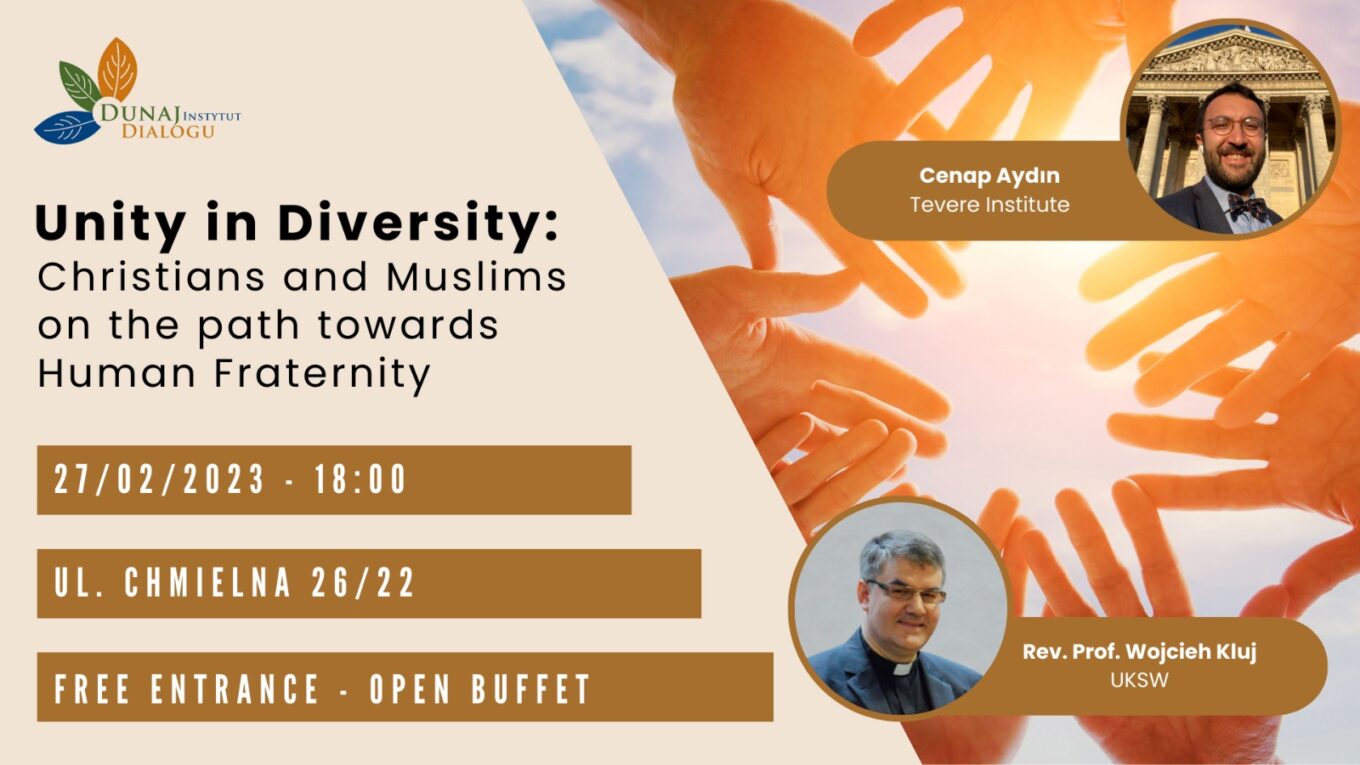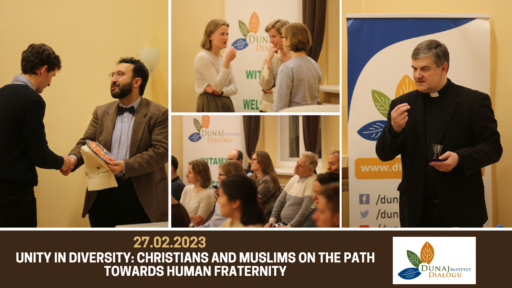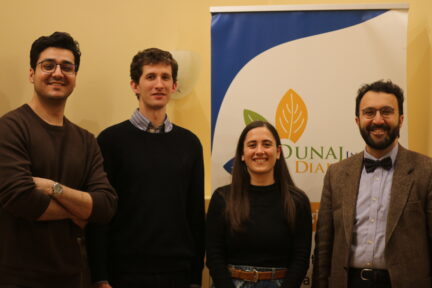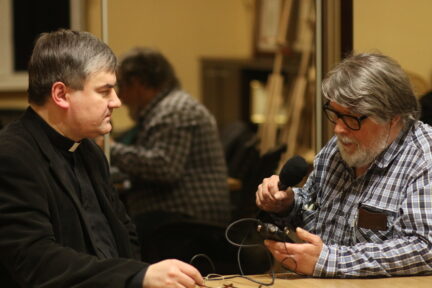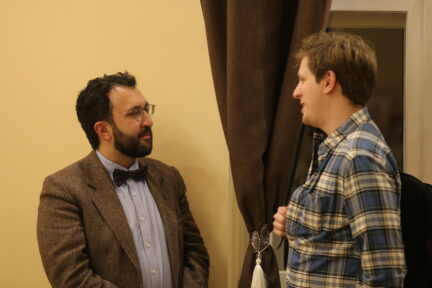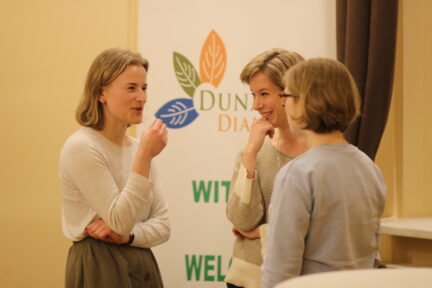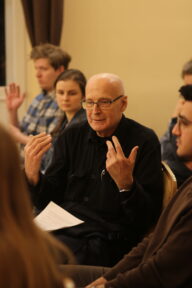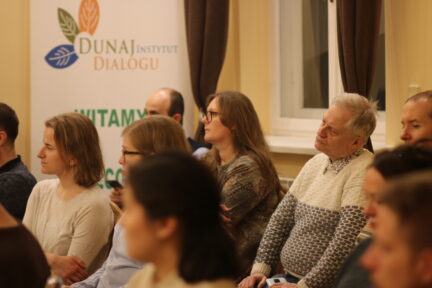Join us for a panel discussion on „Unity in Diversity: Christians and Muslims on the path towards Human Fraternity” This event will bring together experts from different religious backgrounds to discuss the role of religion in promoting unity and understanding among diverse communities.
In today’s world, tensions between different religious groups can often seem insurmountable. However, with the signing of the Human Fraternity document by Pope Francis and Sheikh Ahmed el-Tayeb, the Grand Imam of Al-Azhar, there is renewed hope for interfaith dialogue and cooperation.
This panel will provide a unique opportunity to gain a deeper understanding of the similarities and differences between Christianity and Islam, and explore the ways in which they can work together to foster mutual respect and understanding. We will discuss how the Islamic tradition encourages dialogue and respect for other faiths, and how Christians approach interfaith dialogue and seek to build bridges of understanding and cooperation with Muslims and other faiths.
Some of the questions we will explore include: Does Islam have a tradition of dialogue with other religions? What is the significance of the Human Fraternity document, and how has it impacted the Christian community?
Speakers:
Rev. Prof. Wojciech Kluj – is a catholic priest of the Missionary Oblates of Mary Immaculate (OMI). He is a professor of catholic theology at the Cardinal Stefan Wyszyński University in Warsaw (UKSW), specializing in missiology, history of missions in Asia and Oceania, and Asian religions. He studied at the Adam Mickiewicz University in Poznań and St. Paul University of Ottawa (Canada), and was a missionary in Madagascar. Rev. Prof. Kluj is also active in the field of interreligious dialogue, he used to be the director of the Dialogue of Culture and Religion Institute (UKSW) and is a member of the Committee for Dialogue with Non-Christian Religions in the Polish Episcopal Conference.
Mustafa Cenap Aydin is a co-founder and the Director of Istituto Tevere, a centre for interreligious studies. He is also the Academic Coordinator at the International Institute Jacques Maritain, a centre for studies on human rights, democracy and civil society. He was born and raised in Istanbul where he got his first degrees in Sociology and Political Science at Bogazici University, Istanbul. Since 2004 he has been living in Rome. He studied at the Pontifical Gregorian University (Vatican) in the fields of Christian theology, interfaith studies, Jewish-Christian relations, Asian religions and Law and Religion at the PhD program of LUMSA University in Rome. Furthermore, he completed a master’s degree in Third Sector Management, specializing in Diversity and Inclusion, at the Pontifical University of St.Thomas (Vatican).
Wczoraj zorganizowaliśmy panel dyskusyjny na temat „Jedność w różnorodności: chrześcijanie i muzułmanie na drodze ku Ludzkiej Braterstwu”.
Łącząc ekspertów z różnych środowisk religijnych, omówiliśmy rolę religii w promowaniu jedności i zrozumienia między różnorodnymi społecznościami.
Wydarzenie zapewniło wyjątkową okazję do uzyskania głębszego zrozumienia podobieństw i różnic między chrześcijaństwem i islamem oraz do zbadania sposobów, w jakie mogą oni razem działać. Nasi prelegenci, ks. prof. Wojciech Kluj i Mustafa Cenap Aydin, podzielili się cennymi spostrzeżeniami na temat dialogu międzyreligijnego, znaczenia dokumentu Ludzkie Braterstwo, promowania dialogu i szacunku dla innych wyznań.
Podczas spotkania uczestnicy zadawali różne dobre pytania, a na koniec, dzięki również poczęstunkowi i rozmowom między uczestnikami, w spotkaniu była bardzo przyjemna atmosfera.
Wierzymy, że dialog międzyreligijny to nie tylko dyskusja, ale sposób wspólnego życia dla wspólnego dobra.
Jesteśmy wdzięczni wszystkim, którzy wzięli udział i przyczynili się do takiej refleksyjnej dyskusji. Jako Fundacja będziemy kontynuować nasze działania na rzecz promowania dialogu i współpracy międzywyznaniowej w przyszłości.
